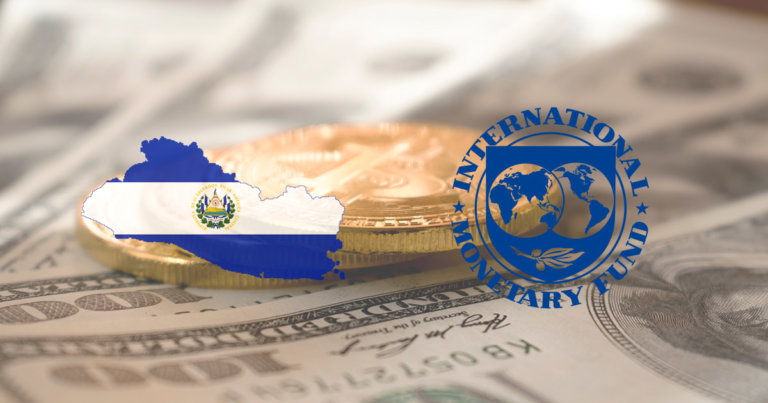 After El Salvador warning, IMF says accepting Bitcoin as national currency is “a step too far”
After El Salvador warning, IMF says accepting Bitcoin as national currency is “a step too far” After El Salvador warning, IMF says accepting Bitcoin as national currency is “a step too far”
The IMF addressed widespread adoption of Bitcoin, claiming it would jeopardize macroeconomic stability.

Cover art/illustration via CryptoSlate. Image includes combined content which may include AI-generated content.
The International Monetary Fund (IMF) published a warning that putting Bitcoin (BTC) or any other crypto on par with a national currency presents serious risks to macro-financial stability.
In their official blog post, written by monetary and capital markets department director Tobias Adrian and legal department head Rhoda Weeks-Brown, the IMF describes adopting cryptos as national currencies as “a step too far” and “an inadvisable shortcut,” while recognizing the “advantages of their underlying technologies.”
Breaking-down the crypto treat
Some of the most pressing threats of the widespread Bitcoin adoption outlined in the blog post include crypto’s money laundering, financing of terrorism and environmental implications.
“Without robust anti-money laundering and combating the financing of terrorism measures, cryptoassets can be used to launder ill-gotten money, fund terrorism, and evade taxes,” the authors warned, adding that “this could pose risks to a country’s financial system, fiscal balance, and relationships with foreign countries and correspondent banks.”
The blog post also pointed out “an enormous amount of electricity” used for mining Bitcoin, saying that the ecological implications of adopting crypto as a national currency “could be dire” but failed to mention initiatives to take advantage of renewable energy.
Besides these abstract global threats, the authors detoured into an everyday life anxiety buildup, while addressing more individual-oriented compromises, such as sustainability of domestic prices.
“As a result, domestic prices could become highly unstable. Even if all prices were quoted in, say, Bitcoin, the prices of imported goods and services would still fluctuate massively, following the whims of market valuations.”
In the same manner, the authors addressed how crypto might compromise consumer protection while saying that “households and businesses could lose wealth through large swings in value, fraud, or cyber-attacks.”
Urging governments to step up
While the biggest part of the blog was dedicated to warnings about risks and pitfalls surrounding Bitcoin adoption, the concluding remarks were written in a consistent alarm-raising tone as the authors urged governments to react with a solution in the form of national digital currency (CBDC).
“Governments, however, need to step up to provide these services, and leverage new digital forms of money while preserving stability, efficiency, equality, and environmental sustainability,” concluded the authors worried about “monetary policy losing a bite.”



 CryptoQuant
CryptoQuant 































































































